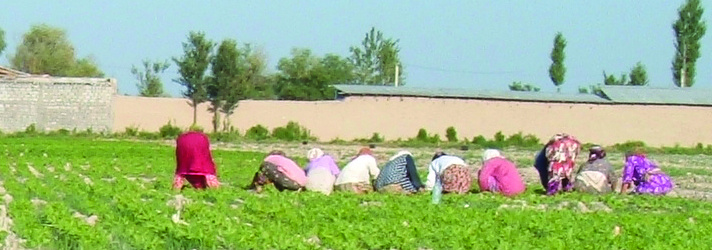
Events
Smallholder Farming: Strategies for Sustainability and Resilience

Join J-WAFS for a panel featuring research presentations by graduate students and senior scholars
Smallholder farmers around the world face numerous risks to their agricultural productivity. The challenges they encounter can vary by region, and can include soil nutrient levels and fertilizer access; water supply, pricing and financing; and supply chain issues, among others. Many of these issues affect farmers in the Global South in particular. Climate change poses a further threat, and is expected to make the livelihoods of these individuals and communities even more precarious.
Researchers at MIT are developing a variety of solutions to these challenges, applying strategies in engineering, soil science, and economics and finance while ensuring the cultural appropriateness of these innovations. Join J-WAFS to learn about a few of the solutions being developed here. These strategies—affordable soil sensors, novel business models, and even a redesigned tractor—could provide avenues for sustainability and resilience for smallholder farmers around the world.
Presenters:
Guillermo Fabian Diaz Lankenau, PhD candidate, Department of Mechanical Engineering
Guillermo is a PhD candidate in Mechanical Engineering at MIT. He works in the Global Engineering and Research (GEAR) Lab on farm mechanization for emerging markets. He has worked at John Deere and interned at NASA and the Carnegie Mellon Robotics Institute. He will speak about the origin and merits of the most common farm tractor design and share the drawbacks that could be addressed in future designs to make it more suitable for use by smallholder farmers.
Sorin Grama, Entrepreneur-in-Residence, Martin Trust Center, and instructor, MIT D-Lab
Sorin co-founded and served as CEO and CTO of Promethean Power Systems, a manufacturer of thermal energy storage systems for refrigeration and cold-storage applications. Sorin is also one of the founders of Greentown Labs, a grassroots effort which has grown to become the nation’s largest cleantech incubator. He is trained as an electrical engineer, holds an MS in Engineering and Management from Massachusetts Institute of Technology and currently co-teaches an undergraduate two product design course at MIT D-Lab (D-Lab: Design and Design for Scale). At this event, Sorin will speak about how technical and business model innovations can help Indian dairy farmers produce more milk and generate more income.
Nidhi Sharma, MS candidate, Integrated Design & Management Program
Nidhi is a graduate fellow at Integrated Design & Management program at MIT. She identifies herself as an electronics engineer and entrepreneur and is highly interested in the commercialization of technology that can help people live better. She began her entrepreneurial journey in India as founder of Ukhaad Electronics, a venture that runs workshops and training to introduce colleges and schools in India to STEM subjects. Also a Tata Fellow, she is working to develop soil moisture sensors that can serve as a wireless, low-cost strategy for Indian farmers to perform precision agriculture.
Presenter TBD
A research initiative of the MIT D-Lab is assessing opportunities for the use of digital payments for smallholder farmers in resource-constrained settings. This project, begun in 2018 through a partnership with USAID’s Feed the Future Program (D2FTF) seeks to better understand the role that digital services can play in the financial inclusion of smallholder farmers in Senegal and Guatemala.

